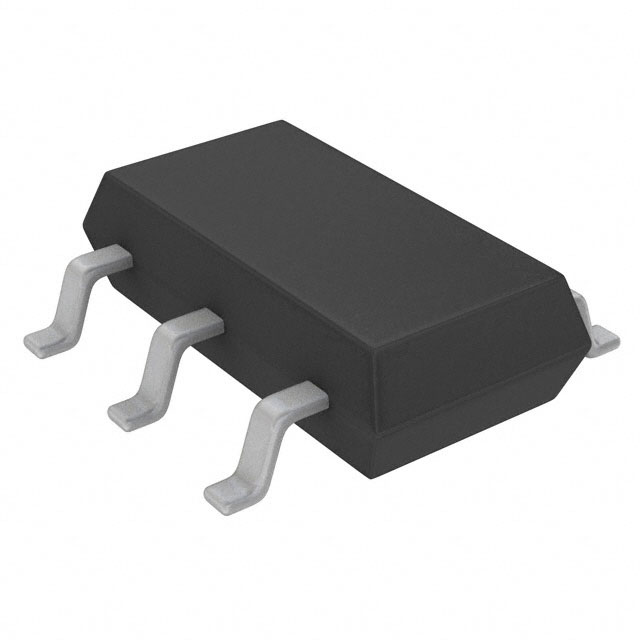Xem thông số kỹ thuật để biết chi tiết sản phẩm.

LT6656BIS6-2.048#TRPBF
Product Overview
Category
The LT6656BIS6-2.048#TRPBF belongs to the category of precision voltage references.
Use
This product is primarily used in applications that require a stable and accurate voltage reference. It provides a precise voltage output that can be used as a reference for various analog circuits.
Characteristics
- High precision: The LT6656BIS6-2.048#TRPBF offers exceptional accuracy with low temperature drift, ensuring reliable performance over a wide range of operating conditions.
- Low noise: This voltage reference has low output noise, making it suitable for sensitive applications that require minimal interference.
- Low power consumption: The LT6656BIS6-2.048#TRPBF is designed to operate with low power consumption, making it energy-efficient.
- Wide temperature range: It can operate reliably across a wide temperature range, making it suitable for both industrial and consumer applications.
Package
The LT6656BIS6-2.048#TRPBF comes in a small SOT-23 package, which is compact and easy to integrate into various circuit designs.
Essence
The essence of the LT6656BIS6-2.048#TRPBF is its ability to provide a stable and accurate voltage reference, ensuring precise and reliable operation of analog circuits.
Packaging/Quantity
This product is typically available in tape and reel packaging, with a quantity of 3000 units per reel.
Specifications
- Output Voltage: 2.048V
- Initial Accuracy: ±0.05%
- Temperature Coefficient: 10ppm/°C
- Output Noise: 4µVrms (0.1Hz to 10Hz)
- Supply Voltage Range: 2.7V to 18V
- Quiescent Current: 1.2mA
Detailed Pin Configuration
The LT6656BIS6-2.048#TRPBF has a six-pin SOT-23 package with the following pin configuration:
- GND (Ground)
- VOUT (Output Voltage)
- NC (No Connection)
- NC (No Connection)
- NC (No Connection)
- VIN (Input Voltage)
Functional Features
- High precision voltage reference
- Low temperature drift
- Low output noise
- Wide operating temperature range
- Compact and easy-to-integrate package
Advantages and Disadvantages
Advantages
- Provides stable and accurate voltage reference
- Low power consumption
- Suitable for sensitive applications
- Wide temperature range operation
Disadvantages
- Limited pin configuration options
- Relatively higher initial cost compared to standard voltage references
Working Principles
The LT6656BIS6-2.048#TRPBF is based on a bandgap voltage reference circuit. It utilizes a combination of temperature-compensated components to generate a precise voltage output that remains stable over varying operating conditions.
Detailed Application Field Plans
The LT6656BIS6-2.048#TRPBF finds application in various fields, including: 1. Precision measurement equipment 2. Data acquisition systems 3. Industrial control systems 4. Medical devices 5. Audio amplifiers 6. Communication systems
Detailed and Complete Alternative Models
Some alternative models that offer similar functionality to the LT6656BIS6-2.048#TRPBF include: 1. AD584: Precision Voltage Reference 2. MAX619: Low-Power Precision Voltage Reference 3. REF102: High-Precision Voltage Reference 4. LM4040: Precision Micropower Shunt Voltage Reference 5. ADR4550: Ultralow Noise Voltage Reference
These alternative models provide comparable precision, stability, and performance characteristics to the LT6656BIS6-2.048#TRPBF.
In conclusion, the LT6656BIS6-2.048#TRPBF is a high-precision voltage reference that offers stable and accurate voltage output. Its low power consumption, wide temperature range operation, and compact package make it suitable for various applications in different fields. Alternative models with similar functionality are also available in the market.
Liệt kê 10 câu hỏi và câu trả lời thường gặp liên quan đến ứng dụng LT6656BIS6-2.048#TRPBF trong giải pháp kỹ thuật
Sure! Here are 10 common questions and answers related to the application of LT6656BIS6-2.048#TRPBF in technical solutions:
Q: What is the LT6656BIS6-2.048#TRPBF? A: The LT6656BIS6-2.048#TRPBF is a precision voltage reference IC manufactured by Analog Devices.
Q: What is the purpose of the LT6656BIS6-2.048#TRPBF? A: The purpose of this IC is to provide a stable and accurate voltage reference for various applications, such as analog-to-digital converters (ADCs), digital-to-analog converters (DACs), and other precision measurement systems.
Q: What is the output voltage of the LT6656BIS6-2.048#TRPBF? A: The LT6656BIS6-2.048#TRPBF provides a fixed output voltage of 2.048 volts.
Q: What is the typical accuracy of the LT6656BIS6-2.048#TRPBF? A: The typical accuracy of this voltage reference is ±0.05% or ±5 mV.
Q: What is the temperature coefficient of the LT6656BIS6-2.048#TRPBF? A: The temperature coefficient is typically 10 ppm/°C, which means the output voltage changes by 10 parts per million for every degree Celsius change in temperature.
Q: What is the operating temperature range of the LT6656BIS6-2.048#TRPBF? A: The operating temperature range is -40°C to +125°C.
Q: Can the LT6656BIS6-2.048#TRPBF be used in battery-powered applications? A: Yes, this IC can be used in battery-powered applications as it has low power consumption and operates over a wide voltage range.
Q: Is the LT6656BIS6-2.048#TRPBF suitable for high-precision measurements? A: Yes, this voltage reference is designed for high-precision applications and offers excellent long-term stability and low noise performance.
Q: Can I use multiple LT6656BIS6-2.048#TRPBF ICs in parallel to increase the output current? A: Yes, you can connect multiple ICs in parallel to increase the output current capability while maintaining the same voltage reference.
Q: What package does the LT6656BIS6-2.048#TRPBF come in? A: The LT6656BIS6-2.048#TRPBF is available in a 6-lead SOT-23 package, which is small and suitable for space-constrained applications.
Please note that these answers are general and may vary depending on the specific datasheet and application requirements.

